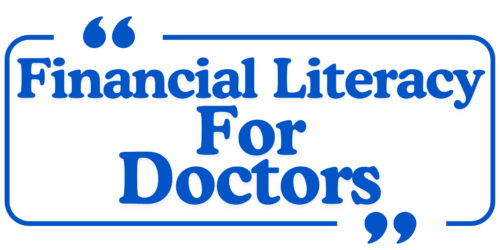Graduating from medical school is a significant achievement that opens the door to a rewarding career. However, along with the excitement of starting your medical career comes the desire to establish yourself financially, and for many, this includes buying a home. Yet, getting a mortgage right out of medical school can be challenging due to factors like high student loan debt and a lack of substantial work history.
Despite these hurdles, it is possible for newly graduated doctors to secure a mortgage. With the right approach and a clear understanding of the process, you can purchase a home soon after completing your medical education.
Here are some key strategies to help you get a mortgage after medical school.
1. Consider Physician Mortgage Loans
One of the best options available to doctors right out of medical school is a physician mortgage loan. These are specialized loan programs designed for medical professionals, often referred to as “doctor loans.”
Physician mortgage loans are ideal for new doctors because they come with several benefits:
- Low to No Down Payment: Many physician loans require little to no down payment, which is helpful for those just starting out who may not have a large amount of savings.
- No Private Mortgage Insurance (PMI): Unlike conventional loans, physician loans typically don’t require PMI, even with a low down payment.
- Student Loan Flexibility: Lenders offering physician loans tend to be more lenient when it comes to student loan debt. Instead of looking at your total debt, they may consider your income-driven repayment plan or future earnings potential.
These loans are designed to take into account the financial situation of new doctors, understanding that while you may have substantial student loan debt, your future earning potential is high.
2. Improve Your Credit Score
Before applying for any mortgage, including physician loans, it’s essential to check and improve your credit score. A good credit score can make a significant difference in the interest rate you receive, which will impact the overall cost of your mortgage.
If your credit score needs improvement, consider the following:
- Pay off small debts: Reduce outstanding credit card balances and other small debts to improve your debt-to-income ratio.
- Make timely payments: Be consistent with paying all your bills on time, as late payments can negatively impact your credit.
- Avoid opening new credit accounts: Opening new credit lines or loans before applying for a mortgage can lower your score, so hold off until after you’ve secured your home loan.
3. Manage Your Student Loan Debt
One of the main concerns lenders have when assessing new doctors is their student loan debt. Given the high debt loads medical students carry, it’s important to manage your student loans wisely before applying for a mortgage.
While some lenders will look at your total debt load, others may focus on your monthly payment under an income-driven repayment plan. Make sure to have all the necessary documentation that shows how much you’re paying monthly, as this can help convince lenders that your student loans won’t hinder your ability to pay the mortgage.
Additionally, if you have any private student loans with high interest rates, consider refinancing them before applying for a mortgage. Reducing your interest rates can lower your monthly payment, improving your debt-to-income ratio.
4. Save for Closing Costs
While physician loans often don’t require large down payments, you’ll still need to cover closing costs, which can range from 2% to 5% of the purchase price of your home. It’s essential to have enough savings to cover these upfront expenses, as they are required before finalizing the home purchase.
Start saving for these costs as soon as you begin considering homeownership. Building a strong financial cushion will make the mortgage process smoother and less stressful.
5. Get Pre-Approved for a Loan
Before shopping for a home, it’s wise to get pre-approved for a mortgage. Pre-approval shows sellers that you are a serious buyer and gives you a clear idea of how much you can afford.
When applying for pre-approval, be ready to provide proof of income (such as your residency contract), student loan payment information, and documentation of any other outstanding debts.
For new doctors who are still in residency, it’s important to note that many lenders will consider your future earning potential when reviewing your application. Your residency contract can be used as evidence of your income, and lenders understand that your salary will increase significantly once you complete your residency.
6. Understand Your Budget
When buying a home after medical school, it’s easy to get excited and overestimate what you can afford. However, it’s important to take a realistic look at your budget and factor in all potential expenses.
Beyond the mortgage payment, consider property taxes, homeowner’s insurance, utility bills, maintenance costs, and any possible homeowner association (HOA) fees. It’s crucial to ensure that your home purchase aligns with your long-term financial goals, such as paying off student loan debt and saving for retirement.
7. Work with a Lender Experienced with Physicians
Not all lenders understand the unique financial situation of new doctors, so it’s crucial to work with a lender who has experience with physician mortgages. These lenders are more likely to offer loan products tailored to doctors, taking into account student debt, residency contracts, and future earning potential.
In conclusion, getting a mortgage after medical school is possible with careful planning and the right loan program. Physician mortgage loans, combined with good credit, manageable student loan debt, and a realistic budget, can help you secure the home you want without derailing your long-term financial goals. By taking these steps, you’ll be well on your way to building a secure financial future as you embark on your medical career.
Written by Pat Brown, MBA
